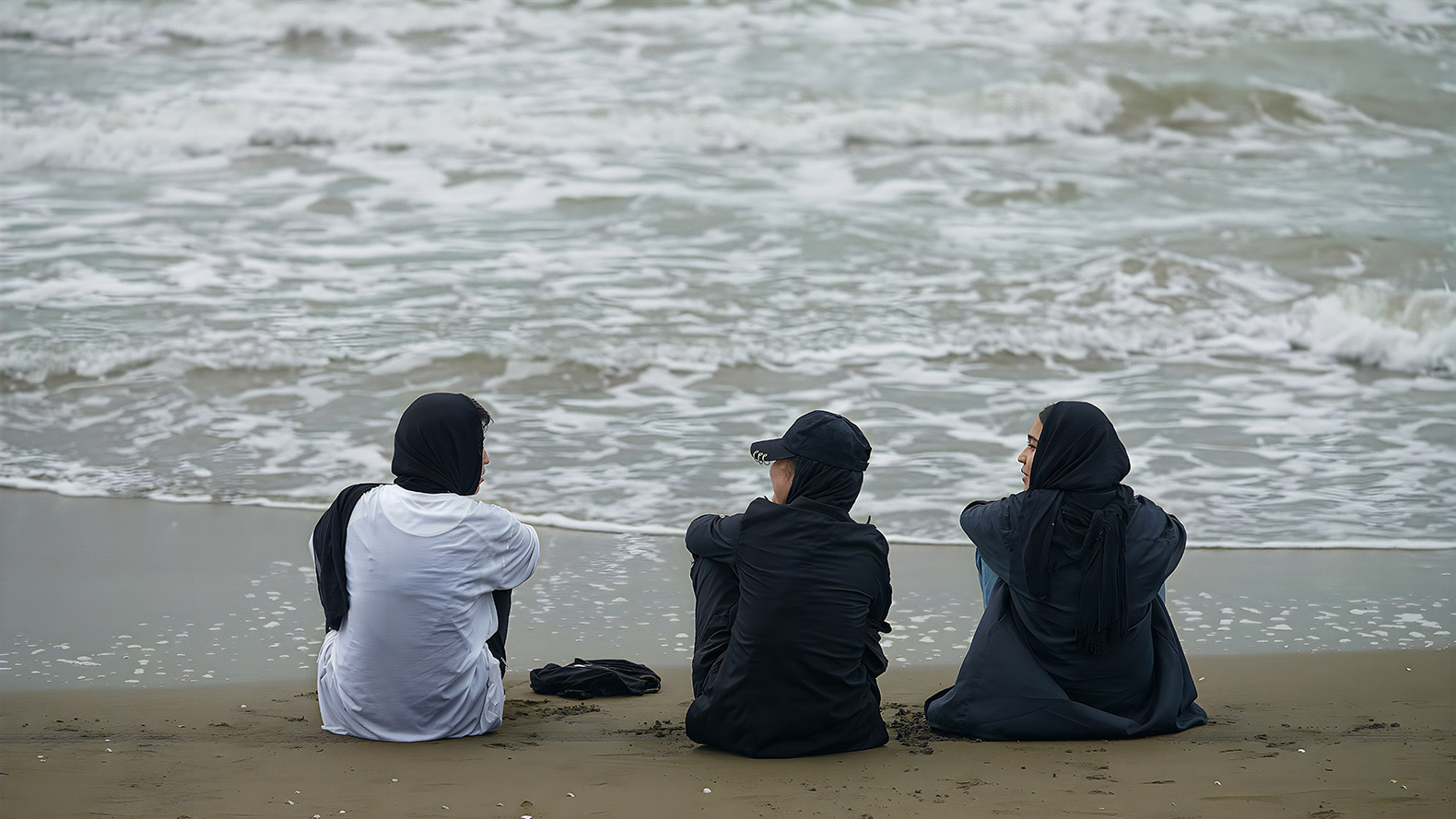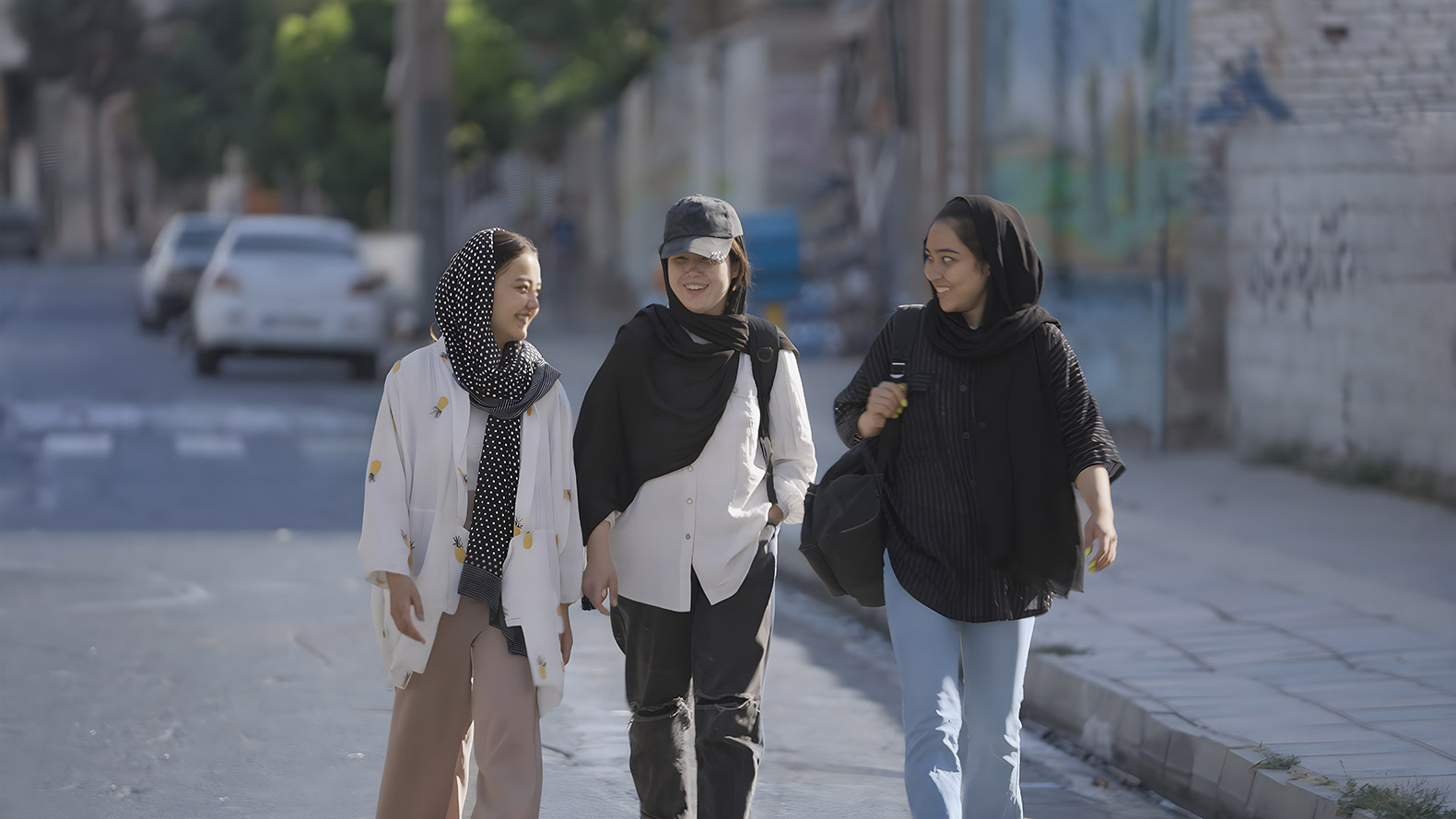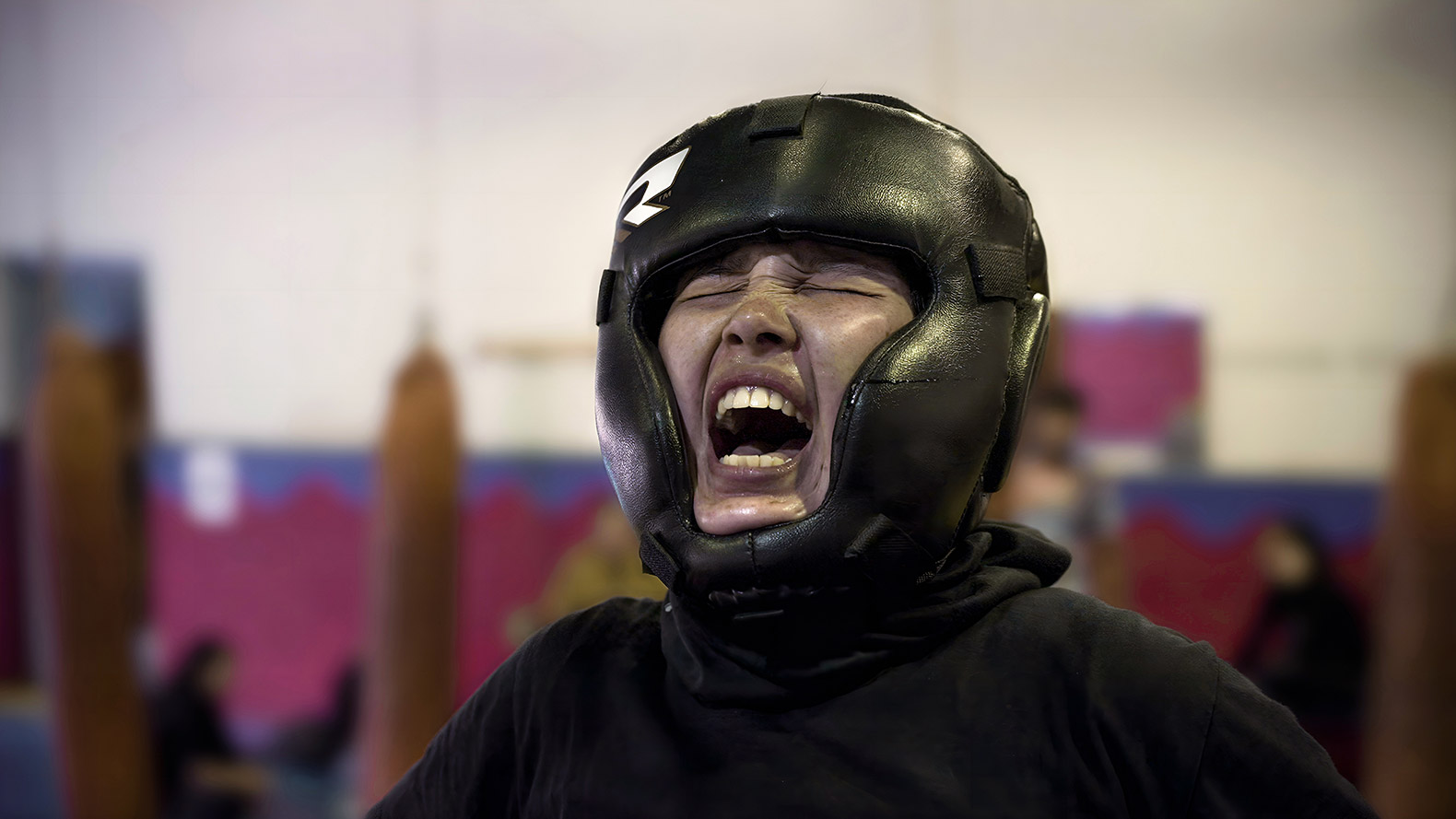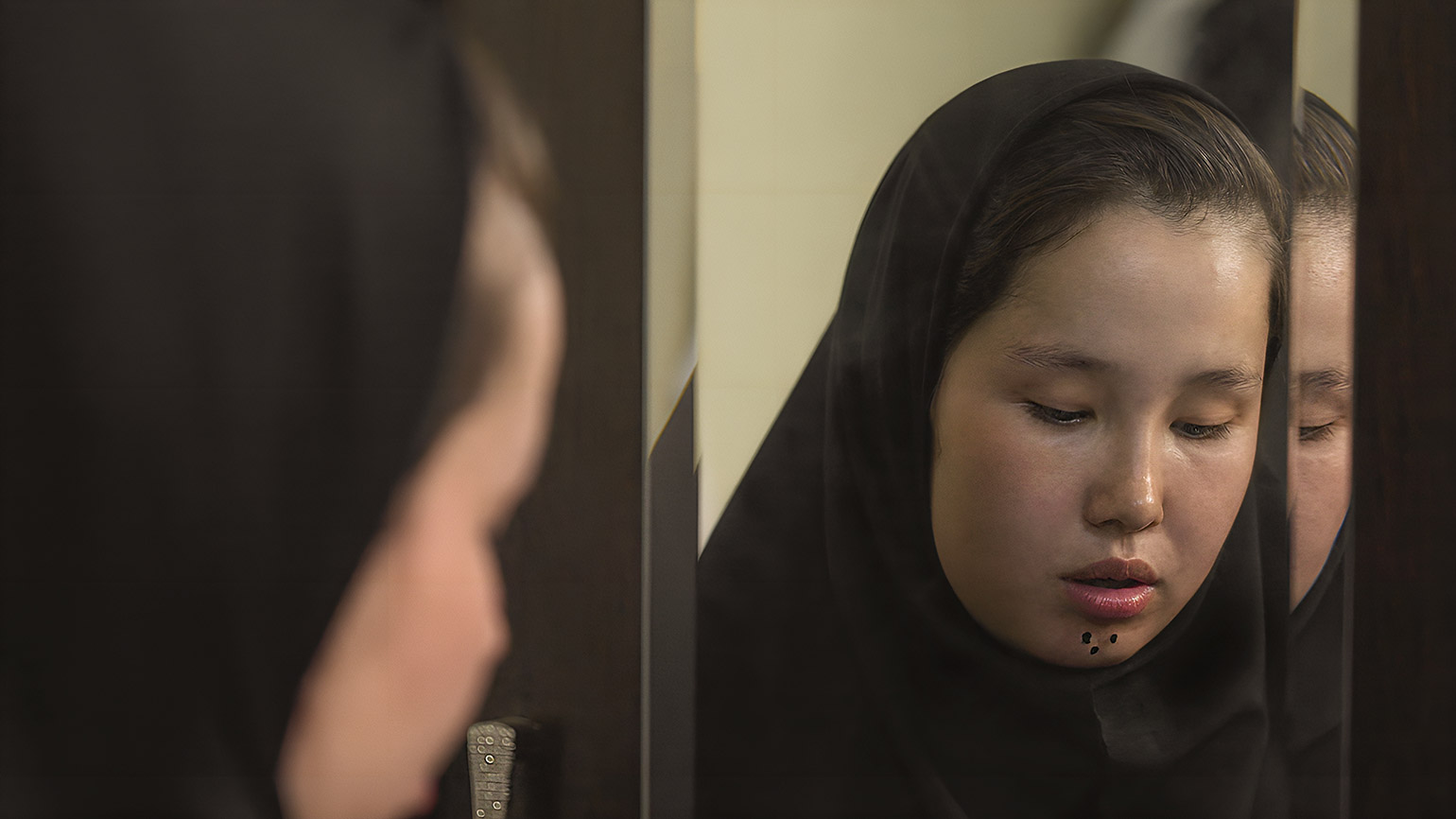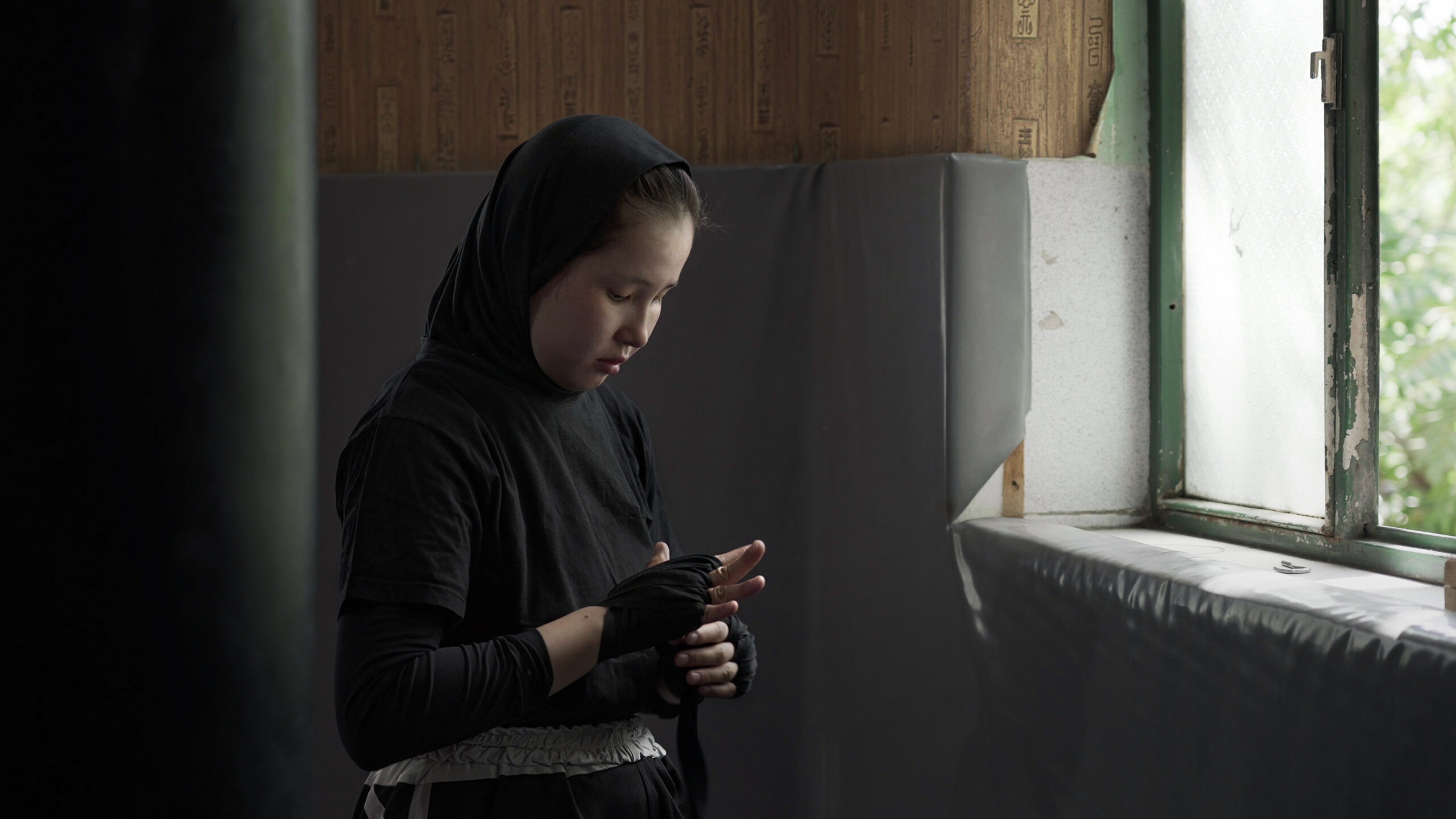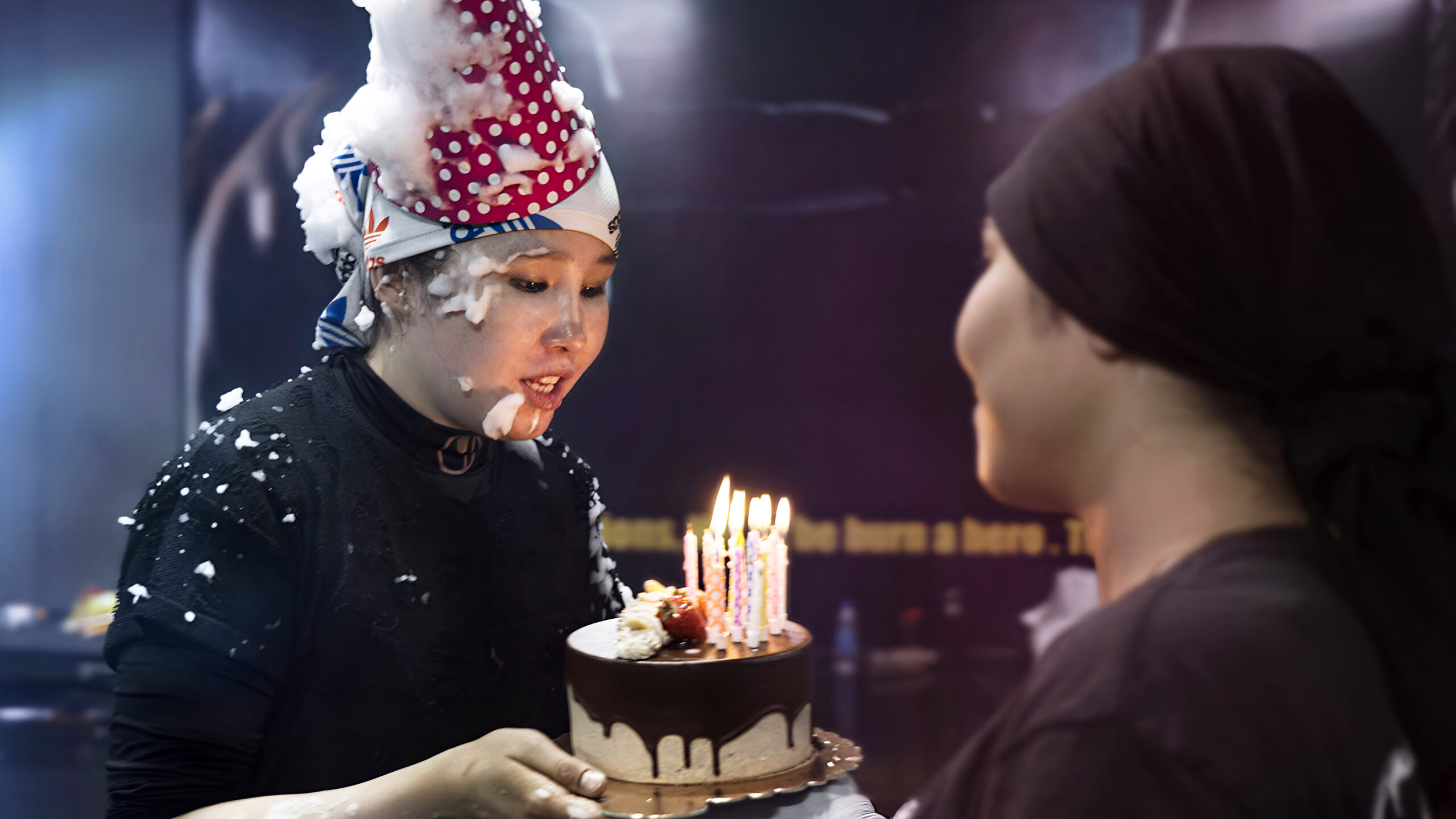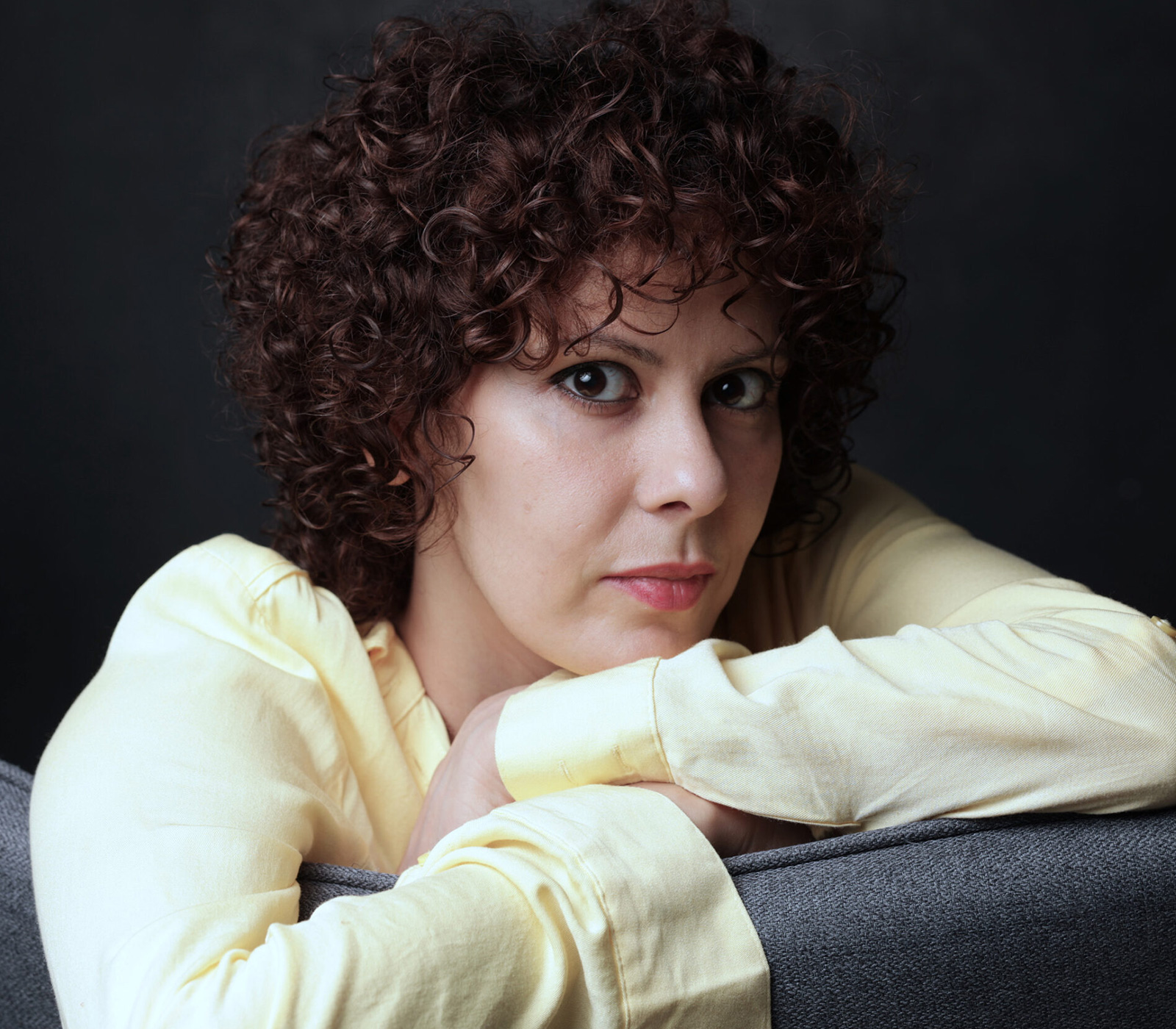
Synopsis
An Afghan teen girl, with immigrant parents in Iran, strives to pursue her dream of becoming a professional Muay Thai boxer despite her family’s conservative mindset, enduring physical abuse, and anti-immigrant surroundings. Working day and night, she finances her Thai Boxing classes without her family’s knowledge. Through this sport, she aspires not only to succeed in the ring but also to overcome life’s obstacles. “Maydegol” portrays the perseverance of Generation Z to escape their seemingly bleak destiny, asserting their rights, especially as women, seeking freedom in life despite the risk of losing it. It also serves as a mirror for them to recognize their strength, find inspiration, and gain confidence.
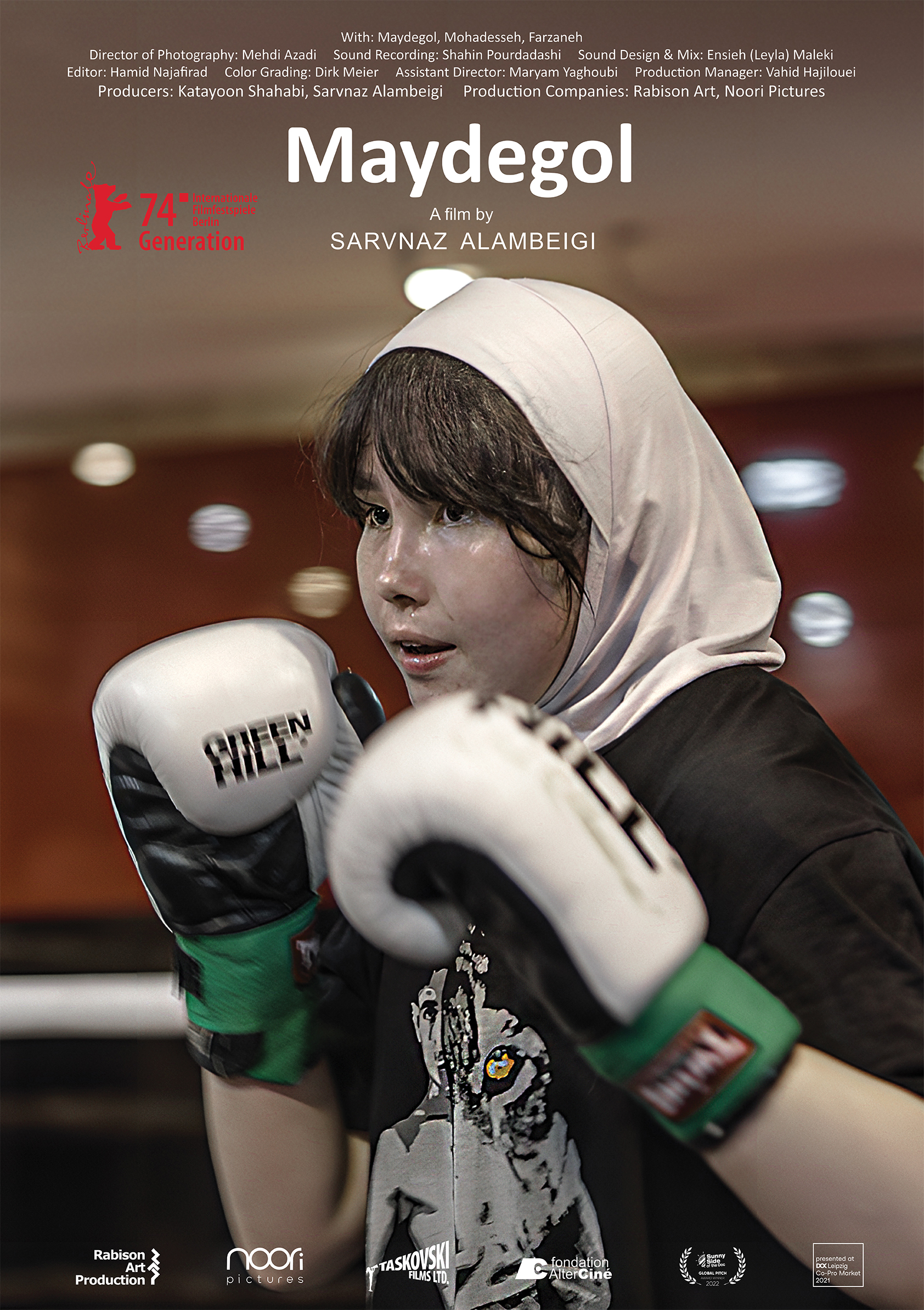
Cast & Crew
- Director & Scriptwriter :Sarvnaz Alambeigi
- Director of Photography :Mehdi Azadi
- Sound recording :Shahin Pourdadashi
- Sound Design & Mix :Ensieh (Leyla)Maleki
- Editor :Hamid Najafirad
- Color Grading :Dirk Meier
- Assistant Director :Maryam Yaghoubi
- Production Manager :Vahid Hajilouei
- Producers :Katayoon Shahabi, Sarvnaz Alambeigi
- Production Companies :Rabison Art, Noori Pictures
- Characters :Maydegol, Mohadeseh, Farzaneh





